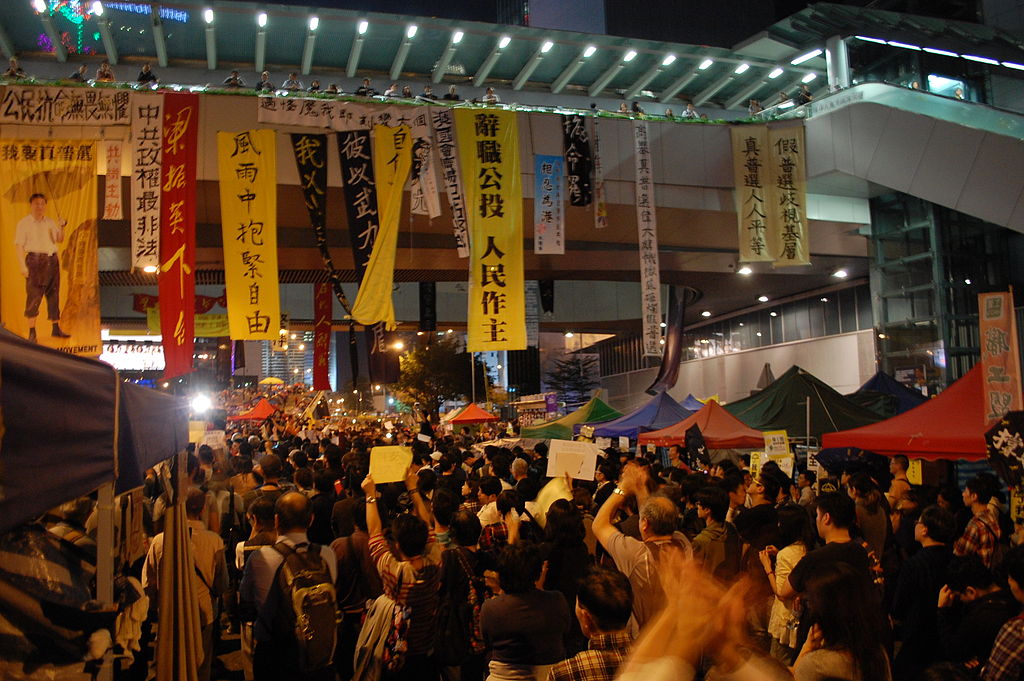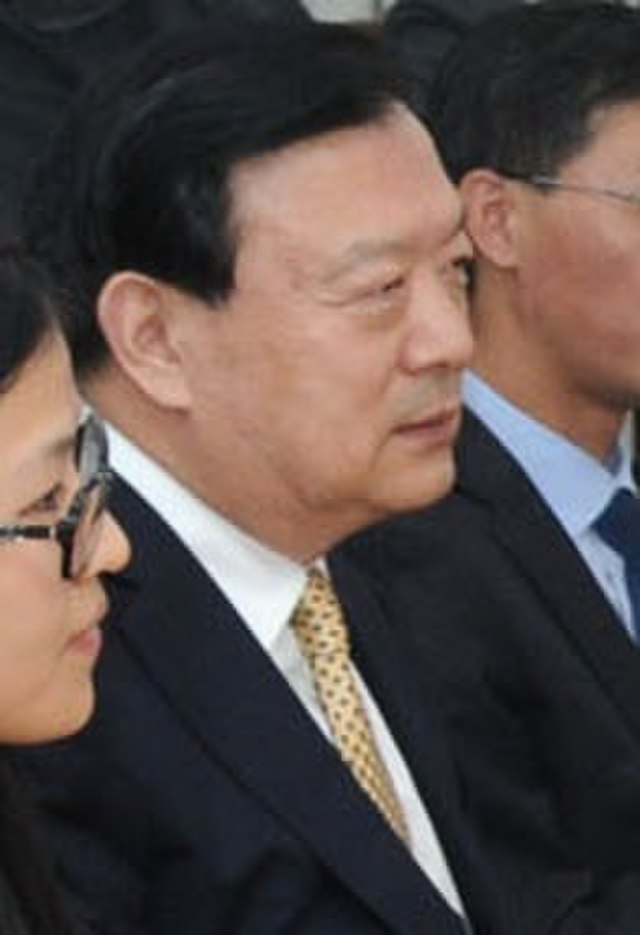AFTER HAVING BEEN enacted for more than a year, the National Security Law has changed Hong Kong’s political landscape. The legal impact of the law is evident and that has provided a solid foundation for Hong Kong’s effective governance. There is no one brand of politics that suits all places at all stages of development. The improvement of Hong Kong’s electoral system has signified the city has found a way out on its political development.
The National Security Law has served as a guardian of Hong Kong’s public order, stability and prosperous development. While the fourth session of the 13th National People’s Congress passed a decision on improving the electoral system of the Hong Kong Special Administrative Region (HKSAR) this year, the associated legislative amendments were passed in May. Currently, we are in the process of preparing the election of Election Committee, the first of the three important elections in the next six months.
Improving Hong Kong’s electoral system is to effectively safeguard the constitutional order established by the nation’s Constitution and the SAR’s Basic Law. It has ensured the implementation of “Hong Kong people administering Hong Kong” with patriots forming the mainstay, strengthened “executive-led governance” and enhanced the SAR administration’s governance efficacy.
Also, it has guaranteed the balanced political participation among people from all social strata, as well as the right to vote and the right to be elected as enjoyed by Hong Kong’s permanent residents.
Accordingly, I have agreed with the viewpoints that governance serves the overall best interests of the society and resolves deep-rooted problems, thereby enabling Hong Kong to maintain its steady development and make an important contribution to national rejuvenation.
Hong Kong has retained its capitalist system and way of life
The HKSAR’s establishment has been blessed with a silver spoon when looking back at Hong Kong’s reunification with motherland on July 1, 1997. Under the “One Country, Two Systems”, Hong Kong has retained its capitalist system and way of life.
While the practice of a high degree of autonomy has conferred to Hong Kong the ability to enjoy more powers than any other administrative regions around the world, the Central Government does not arrange officials to govern Hong Kong, based on the principle of “Hong Kong people administering Hong Kong”.
Besides, Hong Kong’s permanent residents have the right to vote and the right to be elected in Chief Executive and Legislative Council’s elections. In fact, universal suffrage was never implemented in Hong Kong in British times.
When the International Covenant on Civil and Political Rights was signed, the British government clearly reserved the right not to apply the Article 25(b), that is to say universal suffrage was not implemented in Hong Kong. Clearly the Sino-British Joint Declaration does not refer to universal suffrage.
The ultimate aim of universal suffrage, as enshrined in Articles 45 and 68 of the Basic Law, is the right conferred by the Central Government when the city’s mini-constitution was drafted. Therefore, Hong Kong has to undertake the whole responsibilities of safeguarding the national sovereignty, security and development interests of our country, and to maintain its stability and prosperity – all of which are original aspirations of practicing the “One Country Two Systems”. All public officers need to pledge allegiance to the People’s Republic of China and HKSAR as well as uphold the Basic Law.
The Central Government and the SAR administration faithfully put forward arrangements to achieve the goals of dual universal suffrage. The Legislative Council was showing a sign of shift from pan-politicization to the whirlpool of radical opposition in 2014.

On August 31, the National People’s Congress (NPC) Standing Committee still ruled that Hong Kong may elect its Chief Executive via universal suffrage from 2017. The opposition forces, however, rejected it by orchestrating the 79-day Occupy Central movement.
Hong Kong was in throes of anti-government riots in 2019-2020 – of which some participants were in collusion with foreign forces to call for sanctions against the Central Government and Hong Kong as well as advocate “Hong Kong’s independence” and “mutual destruction” in a bid to damage Hong Kong. Conspicuously, the Central Government and the SAR administration have been determined to restore order from chaos by mapping out the National Security Law and enforcement mechanisms, revamping oath-taking arrangement for public officers and improving Hong Kong’s electoral system to allow “Hong Kong people administering Hong Kong” with patriots forming the mainstay, and henceforth all these has marked a turning point for Hong Kong.
In the end, the “direct election” approach did not lead to good governance in Hong Kong
The NPC Standing Committee’s decision has marked a significant leap for Hong Kong to pursue quality democracy. While some politicians advocated the prevalence of “direct election” approach, a total of 35 seats in geographical constituency, together with five seats in the District Council (Second) Functional Constituency, accounted for more than half of 70 seats in the Legislative Council from 2012.
In the end, the “direct election” approach did not lead to good governance in Hong Kong. Instead, it made politics extremely populist and pan-politicized, triggering political turbulence between 2014 and 2020, and resulting in the SAR administration having to struggle with governance. Hong Kong citizens felt hopeless in social dissension and became much more worried over deteriorating law and order. Hence, the promulgation of the National Security Law has curbed violence and disorder while improvement of electoral system has been conducive to the long-term peace and stability in the city.
Meanwhile, the Standing Committee’s decision has neither altered the commitment made on dual universal suffrage nor reversed the “August 31” decision. With the composition of the Election Committee to increase up to 1,500 members and the Legislative Council’s seats to be expanded to 90, the bodies will become inclusive with divergent opinions and talents. The Election Committee is responsible for nominating Chief Executive election candidates, electing the next Chief Executive and 40 of 90 Legislative Council members. Accordingly, it will help boost the SAR administration’s governance efficacy and resolve deep-seated problems in the territory.
Talents who are yet returned in geographical and functional constituencies in the Legislative Council previously, and renowned elites who always keep abreast of the times and represent their industries will be in spotlight. Among those lawmakers to be elected by the Election Committee and in the Legislative Council’s functional constituency, most of them have accumulated rich experience in their professions or organizations and they can represent their sectors well. They have the qualities that are needed to deliver good governance in the city.
I believe that the improvement of electoral system is to ensure the chaos that arose between 2014 and 2020 would never occur again.
Also, the establishment of the Candidate Eligibility Review Committee is aimed at implementing the arrangement of patriots forming the main body in ruling Hong Kong. Previously President Xi Jinping unequivocally indicated that such arrangement is the core element of “One Country Two Systems” and is “fundamental to national sovereignty, security, development interests” as well as “the long-term prosperity and stability of Hong Kong”.
I believe that the improvement of electoral system is to ensure the chaos that arose between 2014 and 2020 would never occur again. It has guaranteed that lawmakers can neither paralyse the government nor collude with external forces to erode the interests of our country and Hong Kong. Amid the challenges in rapidly-changing political landscape and uncertain external economic environment globally, politicians have inevitable responsibility to keep close ties to our motherland unwaveringly and find the way forward for our next generation.

Mr. Xia Baolong, the Vice-Chairman of the Chinese People’s Political Consultative Conference, clearly indicated that it is unnecessary for politicians who govern the city to come from same spectrum in political fields. Xia also listed five criteria for genuine patriots, who should be good at implementing “One Country Two Systems”; resolving tough issues hindering Hong Kong’s development; serving Hong Kong people with concrete results; uniting people from all walks of life and striving to fulfil their responsibilities.
As long as politicians sever the ties with those forces which are anti-China and stir up disorder in Hong Kong, they can participate in local politics.
“One Country Two Systems” is a pioneering initiative with no historical precedent. I have never underestimated the challenges Hong Kong people have encountered in the roadmap of implementing the arrangement, including how to foster good interaction between the Central Authorities and Hong Kong and respect the strengths between the two systems. Of utmost importance is to achieve the principle of “Chinese knowledge as fundamental structure while the Western learning for practical application”, thereby making crucial contribution to the country’s opening-up and establishing “a whole new Hong Kong-style democratic system that fits its pragmatic situation”.
The implementation of the National Security Law and enforcement mechanisms, revamp of arrangement for public officers to swear allegiance and improvement of electoral system will fully boost the confidence and capabilities of Hongkongers to practise “Hong Kong people administering Hong Kong”.
Let’s stay true to our original aspirations and usher in a new chapter in Hong Kong’s history.
Maria Tam Wai-chu is Vice-Chairman of the Basic Law Committee.
Fridayeveryday publishes columns with a wide range of opinions. The stance of writers may not reflect the stance of Friday Culture.
Picture at the top shows Hong Kong Court of Final Appeal by Shanghai88/ Wikimedia Commons

